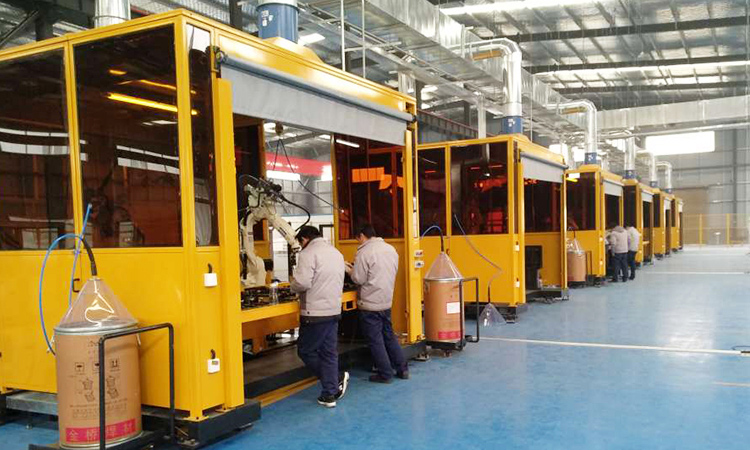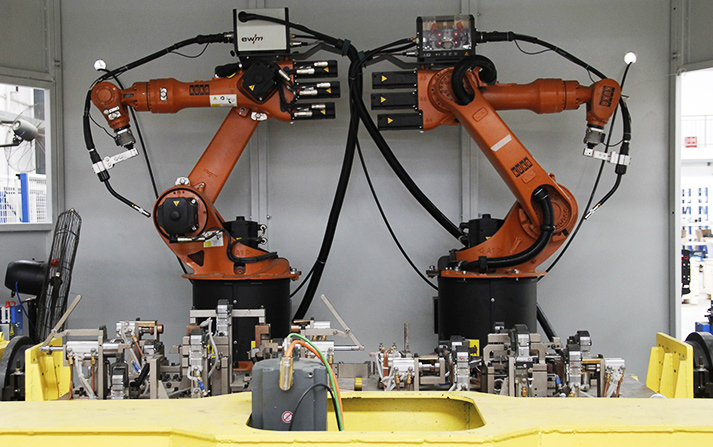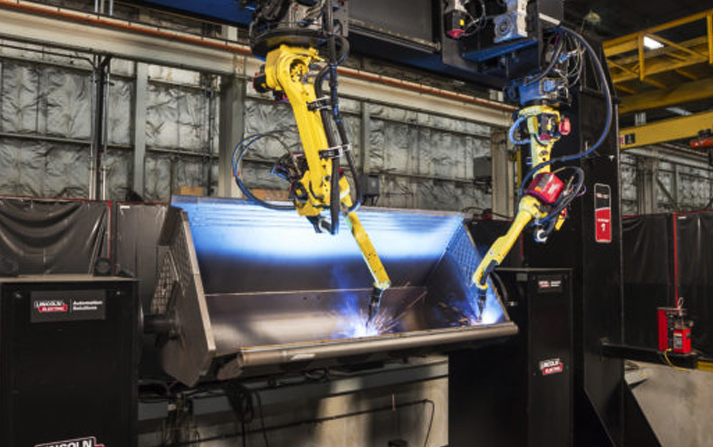In modern manufacturing, welding is a key process, whether it is in automobile manufacturing, engineering machinery manufacturing, aerospace or metal products manufacturing, it is an integral part. However, for many companies, adopting traditional manual welding methods may face a series of challenges, including low production efficiency, high costs, and difficult quality control. With the development of artificial intelligence, the emergence of
robotic welding cells has brought new hopes and opportunities to enterprises.

Improve Production Efficiency
Traditional manual welding requires the operator to have certain welding skills and experience, and production efficiency is affected by the operator's skill level and fatigue level. In contrast, the
robotic welding cells can work continuously 24 hours a day without being affected by fatigue and human factors, thus greatly improving production efficiency. Robotic welding cells can complete welding tasks faster, shorten production cycles, save costs and increase production capacity for companies.

Improve welding quality
Robotic welding cells achieve highly consistent welding quality through precise programming and control. In contrast, manual welding is affected by the operator's skill level and fatigue, and is prone to uneven welding quality. Robotic welding cells can ensure the consistency and quality of welds, improve the overall quality level of products, and reduce cost losses caused by defective rates and quality problems.

Reduce labor costs
Manual welding not only requires hiring operators with a certain skill level, but also requires high labor costs and training fees. In contrast, companies can significantly reduce labor costs once they invest in a robotic welding cell. Although the investment cost of a robotic welding unit is relatively high, in the long run, it can help companies save a lot of labor costs and improve their competitiveness and profitability.
Adapt to diverse production needs
The robot welding unit can be customized, has flexible programming capabilities and rapid mold change functions, and can easily cope with the welding needs of different products. Compared with traditional production lines, robotic welding cells can adjust welding parameters and processes more flexibly to adapt to product changes and changing production orders. This flexibility and adaptability enable companies to better respond to market changes and customer needs, enhancing the company's competitiveness and survivability.
To sum up, the robotic welding unit empowers enterprises by improving production efficiency, improving welding quality, reducing labor costs and adapting to diversified production needs, and has become an important tool for enterprises to achieve sustainable development and enhance competitiveness. With the continuous advancement of technology and the continuous reduction of costs, the application prospects of robot welding units in enterprises will be broader.


